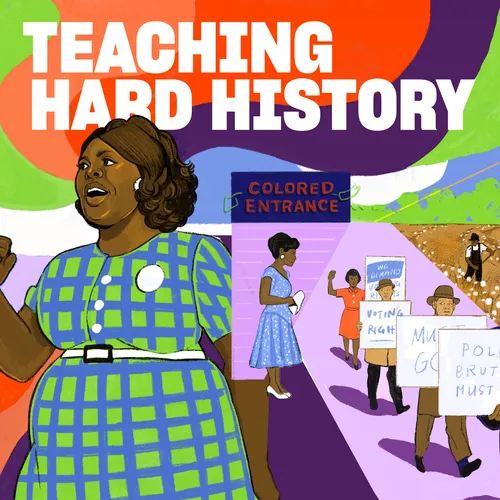
Teaching Hard History
From Learning for Justice and host Hasan Kwame Jeffries, Ph.D., Teaching Hard History brings us the crucial history we should have learned through the voices of leading scholars and educators. The series, which includes four seasons that originally aired from 2018 to 2022, begins with the long and brutal legacy of slavery and reaches through the victories of and violent responses to the Civil Rights Movement and Black Americans’ experiences during the Jim Crow era to the issues we face today.
Join us as we relaunch this podcast series, highlighting an episode each week and including a new resource page with key points from the conversation, resources and connections for building learning experiences.
- Update frequency
- every 15 days
- Average duration
- 64 minutes
- Episodes
- 76
- Years Active
- 2018 - 2025
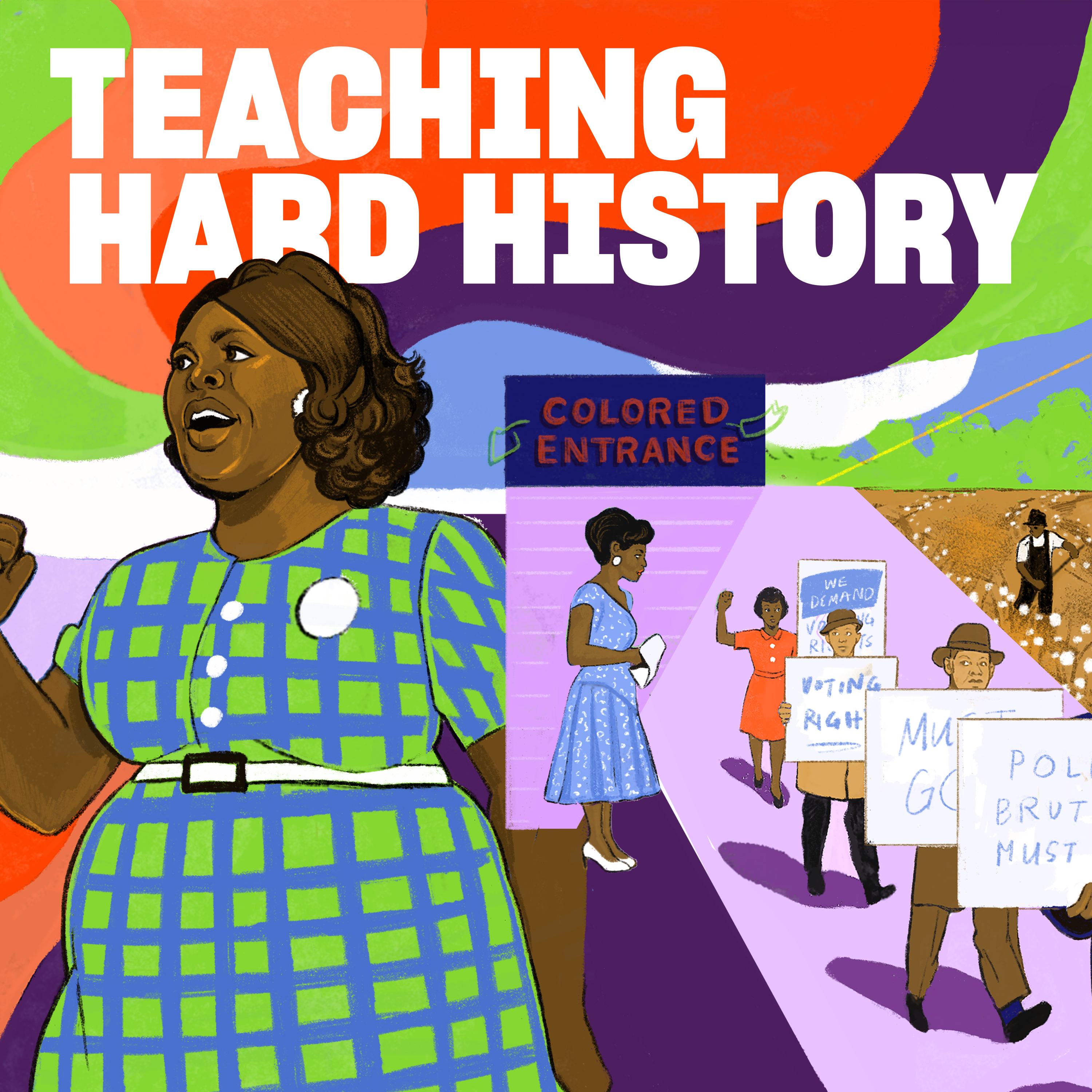
Diverse Experience of the Enslaved
The experiences of enslaved people varied greatly based on a variety of factors, including time, location, crop, labor performed, size of slaveholding and gender. Yet, most students leave school thin…
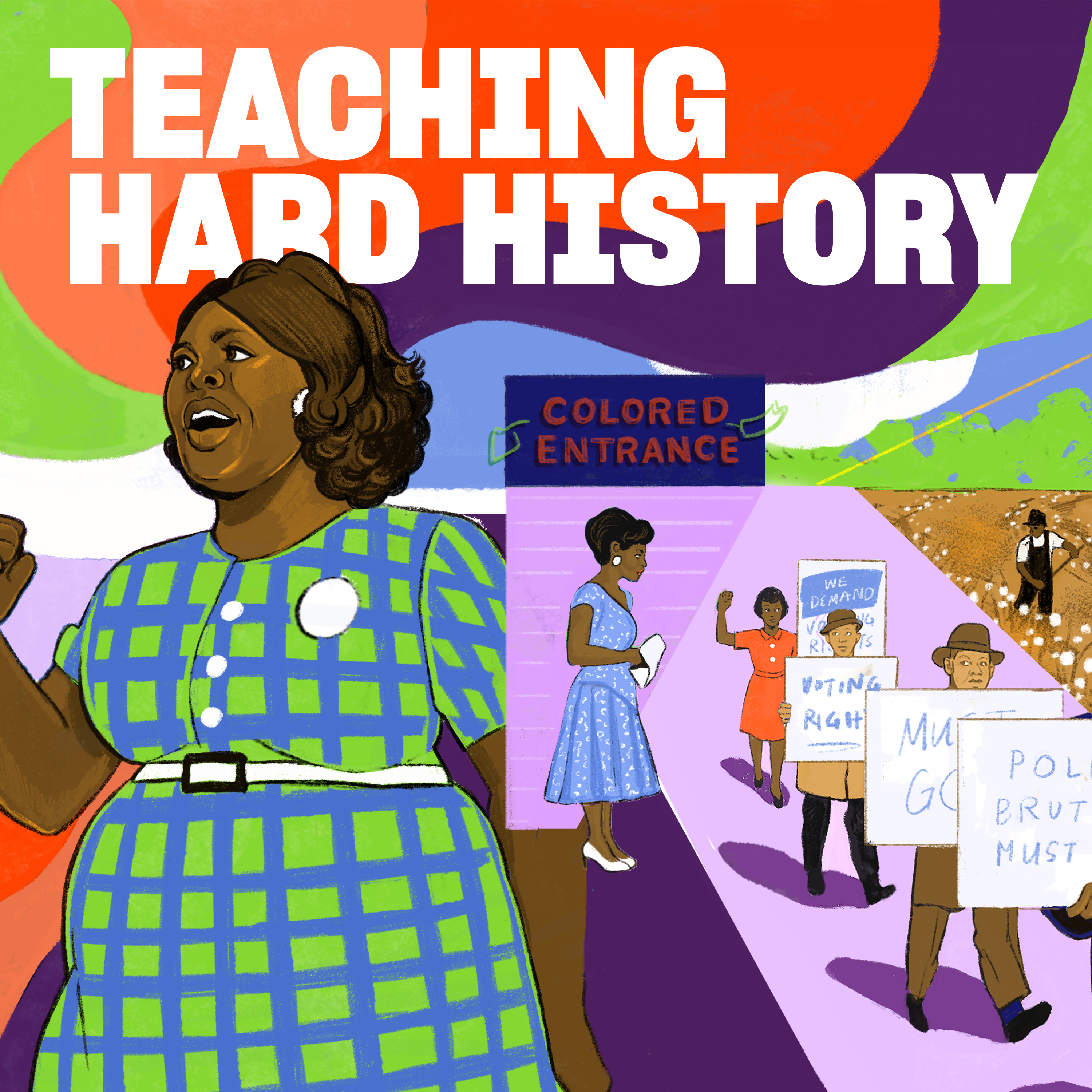
Resistance Means More Than Rebellion
For a more complete picture of enslaved people’s experiences, we need to expand our understanding of resistance. Kenneth S. Greenberg, Ph.D., examines the numerous ways enslaved African Americans inc…
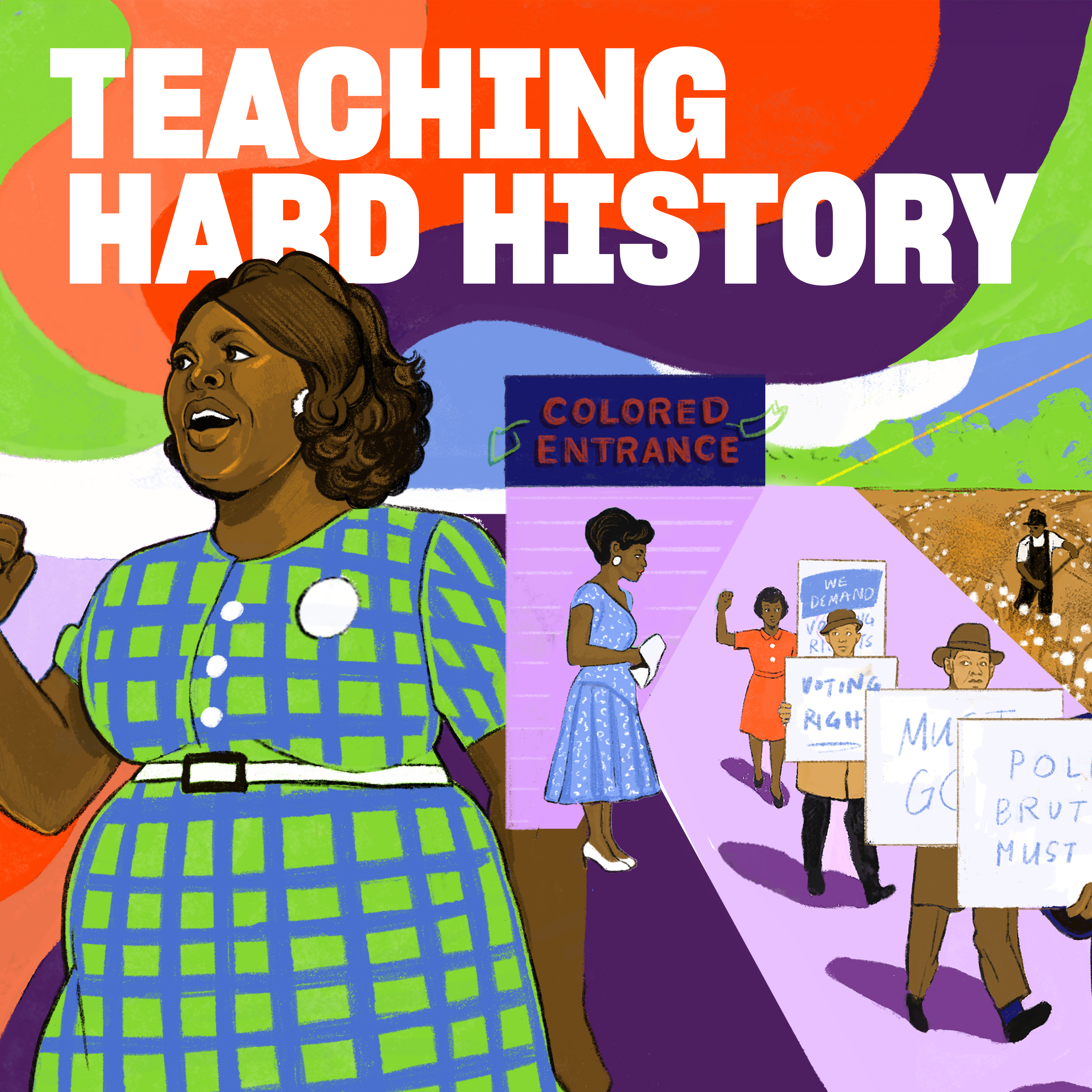
In the Footsteps of Others: Process Drama
In learning about slavery, students often ask, “Why didn’t enslaved people run away or revolt?” Lindsay Anne Randall explains “process drama” — a method to help build empathy and understand the risks…
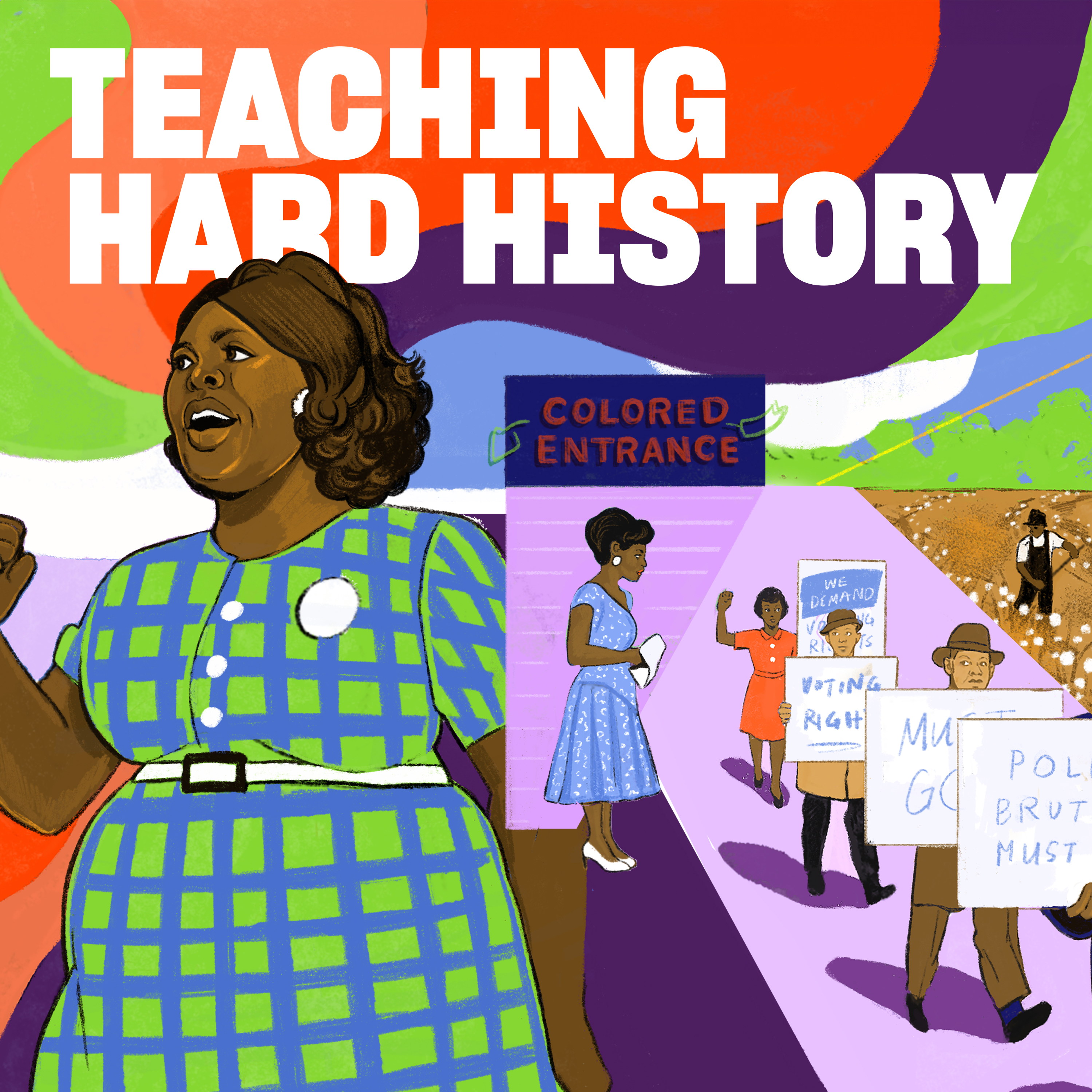
Doing the Work of Teaching Hard History
In many ways, the U.S. has fallen short of its ideals. How can we explain this to students — particularly in the context of discussing slavery? Salem State University professor Steven Thurston Oliver…

Slavery and the Northern Economy
When we think of slavery as a strictly Southern institution, we perpetuate a “dangerous fiction,” according to historian Christy Clark-Pujara. Avoid the trap with this episode about the role the Nort…

Slavery and the Civil War, Part 2
Salem State University professor Bethany Jay returns to examine how the actions of free and enslaved African Americans shaped the progress of the Civil War and contributed to emancipation. Join host …

Slavery and the Civil War, Part 1
What really caused the Civil War? In this episode, Salem State University Professor Bethany Jay examines the complex role that slavery played in causing the Civil War and outlines ways to teach this …

Why Hard History Matters: Addressing the Legacy of Jim Crow – w/ Rep. Hakeem Jeffries
Congressman Hakeem Jeffries represents New York’s 8th congressional district. Our final episode this season takes us to the U.S. House of Representatives for a conversation between Rep. Jeffries and …

Criminalizing Blackness: Prisons, Police and Jim Crow – w/ Robert T. Chase and Brandon T. Jett
After emancipation, aspects of the legal system were reshaped to maintain control of Black lives and labor. Historian Robert T. Chase outlines the evolution of convict leasing in the prison system. A…
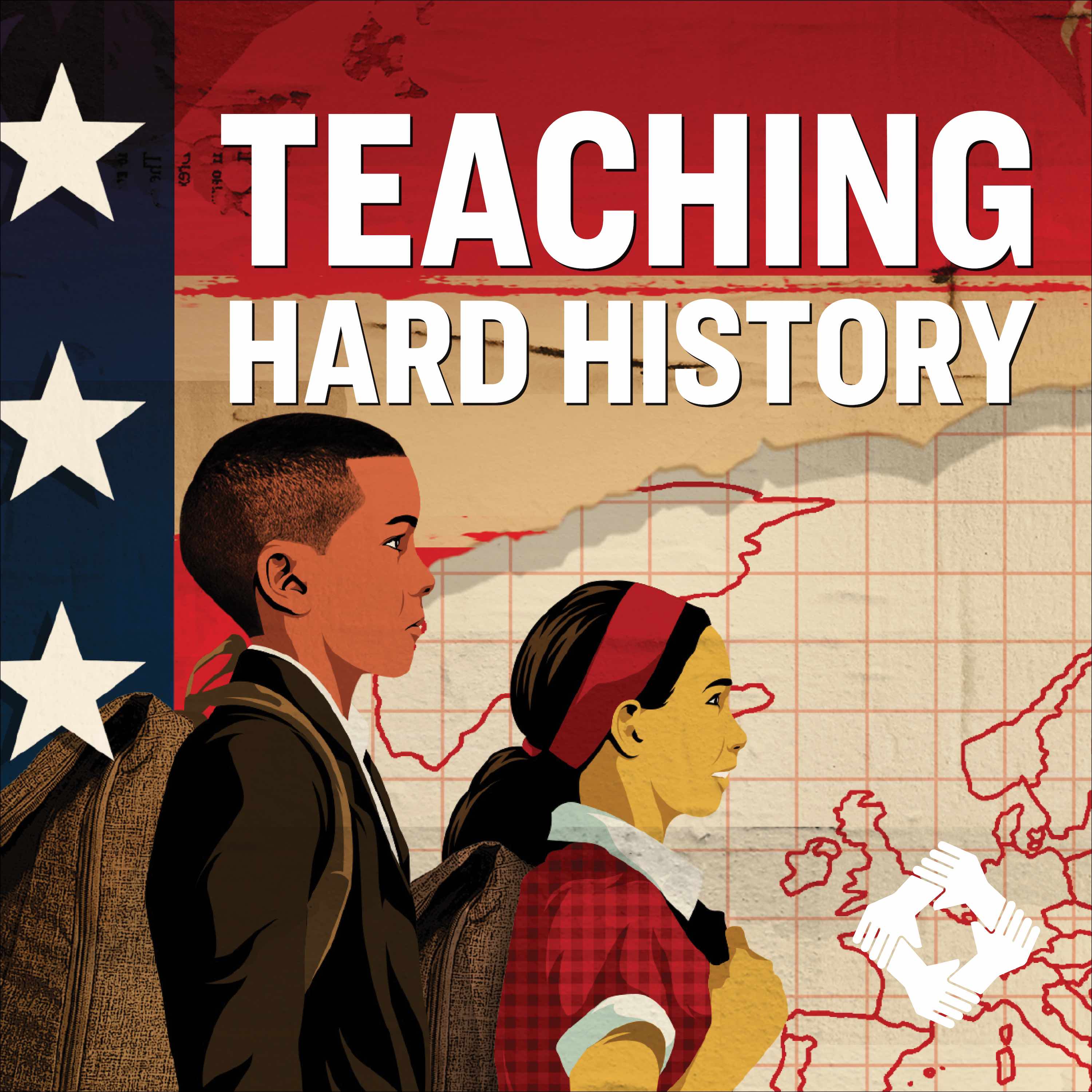
Music Reconstructed: Lara Downes’ Classical Perspective on Jim Crow – w/ Charles L. Hughes
From concertos to operas, Black composers captured the changes and challenges facing African Americans during Jim Crow. Renowned classical pianist Laura Downes is bringing new appreciation to the wor…

Music Reconstructed: Adia Victoria and the Landscape of the Blues – w/ Charles L. Hughes
When we consider the trauma of white supremacy during the Jim Crow era—what writer Ralph Ellison describes as “the brutal experience”—it’s important to understand the resilience and joy that sustaine…

Black Political Thought – w/ Minkah Makalani
Black political ideologies in the early 20th century evolved against a backdrop of derogatory stereotypes and racial terrorism. Starting with Marcus Garvey and the Universal Negro Improvement Agency,…

Music Reconstructed: Dom Flemons, Black Cowboys and the American West – w/ Charles L. Hughes
From ranches to railroads, learn about the often unrecognized role that African Americans played in the range cattle industry, as Pullman porters and in law enforcement. In part two of this special s…

Medical Racism: A Legacy of Malpractice – w/ Deirdre Cooper Owens
This nation has a long history of exploiting Black Americans in the name of medicine. A practice which began with the Founding Fathers using individual enslaved persons for gruesome experimentation e…

Music Reconstructed: Jason Moran, Jazz and the Harlem Hellfighters – w/ Charles L. Hughes
This is a special four-part series where historian Charles L. Hughes introduces us to musicians who are exploring the sounds, songs and stories of the Jim Crow era. In this installment, Jazz pianist …

The Harlem Renaissance: Restructuring, Rebirth and Reckoning – w/ Julie Buckner Armstrong
During the Harlem Renaissance, more Black artists than ever before were asking key questions about the role of art in society. Oftentimes the Harlem Renaissance is misconstrued as a discrete moment i…

Changing the Game: Sports in the Jim Crow Era – w/ Derrick E. White and Louis Moore
In the United States, Black athletes have had to contend with two sets of rules: those of the game and those of a racist society. While they dealt with 20th century realities of breaking the color li…

The New Deal, Jim Crow and the Black Cabinet – w/ Jill Watts
Opportunities created by the New Deal were often denied to African Americans. And that legacy of exclusion to jobs, loans and services can be seen today in federal programs and policies as well as sy…

Black Soldiers: Global Conflict During Jim Crow – w/ Adriane Lentz-Smith
U.S. involvement in world wars and the domestic Black freedom struggle shaped one another. By emphasizing the diverse stories of servicemen and women, historian Adriane Lentz-Smith situates Black sol…

Building Black Institutions: Autonomy, Labor and HBCUs – w/ Jelani M. Favors and Tera W. Hunter
Historian Tera Hunter describes Black institution-building post-slavery and throughout the Jim Crow era, illustrating how Black workers reorganized labor to their advantage, despite virulent white re…